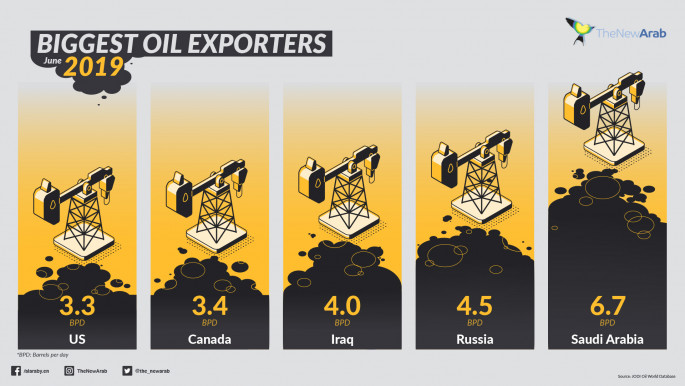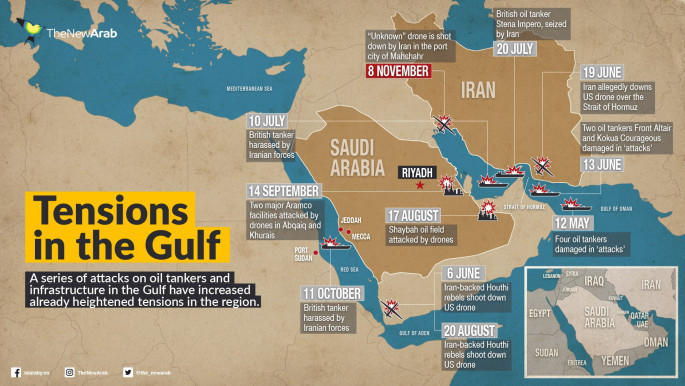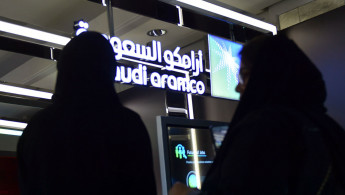Saudi Aramco appoints first woman to head overseas office days before IPO
The state-owned oil giant and the world's top oil exporter chose Marwa al-Khuzaim to lead Aramco's Singapore office from December.
Her appointed comes ahead of Aramco launching its much-anticipated initial public offering (IPO) next week, although it remains unknown how much is on offer.
The company released a lengthy document late on Saturday announcing that the offering period for the world's largest oil producer would begin on 17 November.
While the preliminary prospectus revealed that Aramco will sell up to 0.5 percent of its shared to individual retail investors, it did not indicate how much will be made available to institutional investors.
Despite the small ammount on sale, the offering has generated global buzz because even a sliver would make this the world's largest IPO.
Saudi Aramco pumps more than 10 million barrels of crude oil a day - some 10 percent of global demand.
The appointment of Aramco's first female head of an overseas office, and the Gulf kingdom's first woman ambassador in July, is part of a wider trend in the ultra-conservative kingdom to grant women more freedom.
But human rights group have vehemently criticised Riyadh for cracking down on dissent including the detention and torture of around a dozen women activists, most of whom had campaigned for the right to drive, which was granted last year.
Despite lurking doubts over Aramco's valuation and how much of the company will ultimately be for sale on the kingdom's Tadawul stock exchange, the company's size and profitability has made it undeniably attractive to potential investors.
 |
| Read more: How Saudi Aramco is powering the global climate crisis |
The oil and gas company netted profits of $111 billion last year, more than Apple - currently the world's most profitable listed company - Royal Dutch Shell and Exxon Mobil combined.
Real value?
Aramco said the long-delayed offering period for investors will begin next Sunday, November 17, and will close for individual investors on November 28 and for institutional investors on December 4. The company's shares will be priced on December 5, according to the prospectus, and trading could begin as soon as December 11 according to state-linked media.
Aramco has not yet unveiled plans to list more of the company on an international exchange, although there have been talks with major world exchanges in recent years.
The company has stated its plans to pay out an annual dividened of at least $75 billion starting in 2020, but questions linger over Aramco's real worth.
While the kingdom's controversial de-facto leader and Crown Prince Mohammed bin Salman has priced the company's value at $2 trillion, analysts estimate the value is closer to $1.5 trillion.
Based on a $1.5 trillion valuation, a two percent stake sale would help Aramco raise $30 billion.
The state's control of the company also poses multiple risks to investors, as highlighted by the attacks on two key Aramco processing sites in September, which Saudi Arabia and the United States blamed on their mutual foe Iran.
 |
| Read more: Aramco attacks expose Saudi vulnerability and shaky GCC security |
The prospectus also noted that the Saudi government ultimately decides the country's level of crude oil production. The kingdom has slashed Aramco's production when it's sought to boost oil prices.
The plan to sell part of the company is crucial to the crown prince's plans for a wider economic overhaul aimed at raising new streams of revenue for the oil-dependent country, with oil prices currently struggling to reach the price range per barrel analysts say is necessary for Saudi Arabia to balance its budget.
Bin Salman has said listing Aramco is one way for the kingdom to raise capital for the country's sovereign wealth fund, which would then be used to finance mega projects across Saudi Arabia as part of the crown prince's Vision 2030.
Plans for news cities - such as the futuristic mega city NEOM, which, at an estimated cost of $500 billion, is the most expensive project in the plan - will be reliant upon the success of the Aramco IPO.
The IPO will also open up the company to unprecedented scrutiny.
"Aramco has never had to answer to investors looking at the company's quarterly results," Ellen Wald, author of the book "Saudi Inc.", told AFP.
"When it goes public, that will change."
The Saudi government, however, will continue to own a controlling interest after the IPO. It will also have veto power with respect to any shareholder action, Reuters reported.
Non-qualified investors will also not be able to vote as they will not hold legal title to their shares.
According to a report by the Economic Intelligence group, minority shareholders are unlikely to force any significant shift in the company, but there could be pressure if the stock price underperforms.
"Aramco's past success was partly due to its closed model, where it answered only to Riyadh," the report said.
"Tension seems bound to emerge between the interests of the Saudi state in securing stable oil revenues, the commercial aspirations of a listed Aramco, and the crown prince's vision that must somehow satisfy both."





 Follow the Middle East's top stories in English at The New Arab on Google News
Follow the Middle East's top stories in English at The New Arab on Google News


